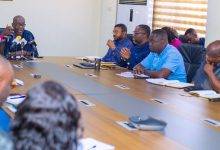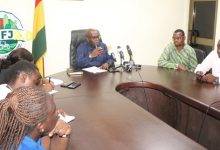Ghana yesterday joined the rest of the world, albeit on a quiet note, to mark the International Day of Older Persons instituted by the United Nations in 1990 to raise public awareness on the wellbeing and special needs of the elderly people.
The day also seeks to increase awareness and appreciation for the role of the healthcare workforce in maintaining and improving the health of older persons, with special attention to the nursing profession.
It is worth knowing that 2020-2030 is referred to as Decade of Action on Healthy Ageing, to remind governments to expedite action to create supportive environment for people to age in dignity and in good health.
Indeed, the COVID-19 pandemic has, perhaps, put the celebration of this important day to the back-burner.
Sadly, the pandemic is claiming the lives of a great proportion of old people who are 60 years plus, due to their low level of immunity against diseases.
The world is faced with the ageing phenomenon as the global aged population is estimated to reach 1.5 billion by 2050, of which 80 per cent will be living in low and middle-income countries.
Sub-Saharan Africa is projected to be the second highest region with increase in older persons, after Eastern and South Eastern Asia, with projected population of older persons growing from 32 million in 2019 to 101 million in 2050.
Ghana has its fair share of ageing population, estimated around 7.2 per cent of the projected 30 million plus population.
Ageing is a natural process of transition due to getting older, leading to decline in physical and mental capabilities so that the individual is unable to function competently as they were in their youthful days.
Ageing population comes with its concomitant health challenges like hearing loss, cataracts, refractive errors, back and neck pains, osteoarthritis, chronic obstructive pulmonary diseases, diabetes, depression and dementia.
Aged persons are a source of wisdom and guidance to society because of their accumulation of wisdom and knowledge over the years, which make them custodians of societal norms and values, for the socialisation process.
Conversely, in some societies, including in some sections of the Ghanaian society, older persons, especially the women, are associated with evil and witchcraft, and are always at the receiving end of society’s victimisation, as we have sadly experienced in some parts of the north recently.
These savage acts on older persons, especially older women, must stop!
As we think of the day we marked yesterday, we must reflect on the contributions of the older persons in national development by creating the conducive and supportive environment to make them live dignified lives.
Under the Sustainable Development Goal 3, we are obliged to ensure healthy lives and promote wellbeing for people of all ages.
We urge the government to give priority to specialised geriatric medicine in readiness for the ageing crises expected to soon unfold.
We salute non-governmental organisations that are working tirelessly to complement the efforts of the government to address issues peculiar to the aged population.
Ageing is a natural process, and the phenomenon is fast catching up with us. Let us, therefore, institute the supportive environment for all of us to age in dignity and in good health!


